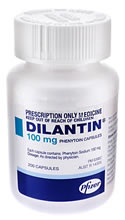Top Class Actions’s website and social media posts use affiliate links. If you make a purchase using such links, we may receive a commission, but it will not result in any additional charges to you. Please review our Affiliate Link Disclosure for more information.

The drug has been named in dozens of Dilantin lawsuits claiming it was the cause behind SJS. Phenytoin is the most commonly prescribed anti-epileptic drug for adults. Manufactured by Pfizer and approved by the U.S. Food and Drug Administration (FDA) in 1953, Dilantin was the first modern drug intended to treat seizures, and it is still the most commonly prescribed anti-seizure medication. Now, eight companies, including Mylan Pharmaceuticals and Baxter Healthcare, make the generic phenytoin. All have had adverse event reports come into the FDA.
Some More Than Others
In 2008, the FDA released a health alert to the public saying that the risk of SJS side effects from Dilantin was increased in those of Asian heritage. The risk was also higher for African Americans. This susceptibility is caused by a specific gene that kicks the patients’ immune system into high gear when metabolizing the drug, in turn destroying healthy skin cells at an accelerated pace.
While the link between Dilantin and SJS was brought to the public’s attention, the label still lacks sufficient warning, according to Stevens Johnson Syndrome class action lawsuits.
SJS side effects are estimated to be fatal in about 15 percent of cases, and a study that included 15 American burn centers showed that 20 percent of TEN cases are believed to be caused by Dilantin, with one in four cases resulting in fatality.
A Violent Allergic Reaction
Stevens Johnson Syndrome, or SJS, expresses as an allergic reaction, but is an autoimmune disease. Induced by various medications, including acetaminophen, the reaction induces the body to attack its own skin. This is a rare situation, which presents differently in any given victim.
SJS symptoms initially present flu-like, with fever, followed by a red rash. If not treated, SJS can escalate to blisters, then sores, and finally ulcers. The damage impacts mucous membranes and the eyes. Covering up to 30 percent of the body, victims can suffer permanent scarring, blindness, and internal organ damage. Once this progresses to more than 30 percent of the body, SJS becomes toxic epidermal necrolysis (TEN). The next step in the reaction, TEN constitutes skin death, where the skin suffers a reaction similar to second and third-degree burns and sloughs off. TEN can impact up to 90 percent of the body. Both SJS and TEN, if diagnosed correctly, are treated in the hospital burn unit. If diagnosed incorrectly, or left untreated, both can prove fatal.
SJS lawsuit around the country are being filed by victims of SJS and TEN. Plaintiffs allege that many of the pharmaceutical companies knew the risks associated with their medication, but neglected to warn consumers because the condition is so rare.
In general, Dilantin Stevens Johnson Syndrome lawsuits are filed individually by each plaintiff and are not class actions.
Do YOU have a legal claim? Fill out the form on this page now for a free, immediate, and confidential case evaluation. The attorneys who work with Top Class Actions will contact you if you qualify to let you know if an individual lawsuit or class action lawsuit is best for you. Hurry — statutes of limitations may apply.
ATTORNEY ADVERTISING
Top Class Actions is a Proud Member of the American Bar Association
LEGAL INFORMATION IS NOT LEGAL ADVICE
Top Class Actions Legal Statement
©2008 – 2024 Top Class Actions® LLC
Various Trademarks held by their respective owners
This website is not intended for viewing or usage by European Union citizens.
Get Help – It’s Free
Join a Free Dilantin Stevens Johnson Syndrome Class Action Lawsuit Investigation
If you or a loved one were diagnosed with Stevens Johnson Syndrome (SJS) or toxic epidermal necrolysis (TEN) after taking a prescribed or over-the-counter medication, like Dilantin, you may be eligible to take legal action against the drug’s manufacturer. Filing an SJS lawsuit or class action lawsuit may help you obtain compensation for medical bills, pain and suffering, and other damages. Obtain a free and confidential review of your case by filling out the form below.
An attorney will contact you if you qualify to discuss the details of your potential case at no charge to you.
Oops! We could not locate your form.












